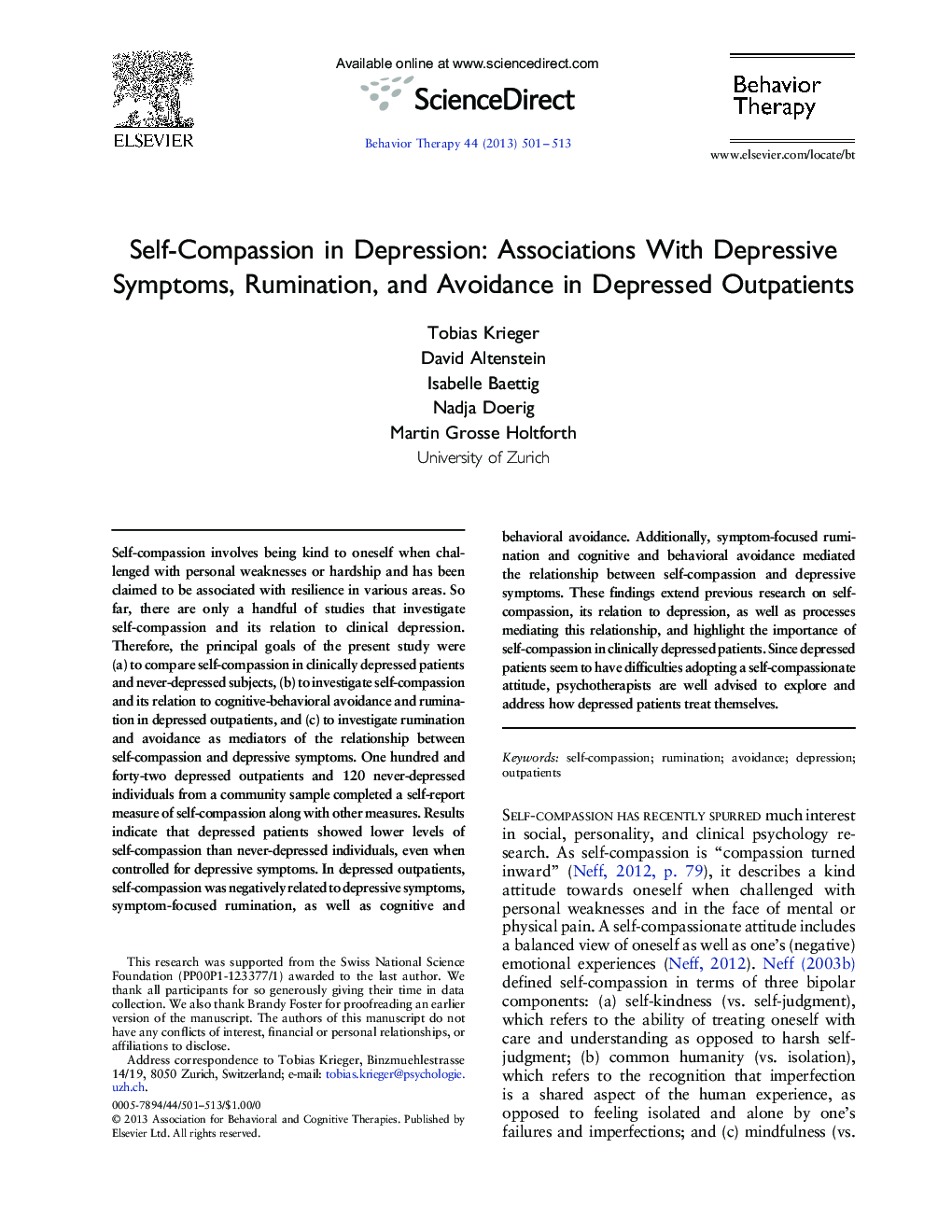| Article ID | Journal | Published Year | Pages | File Type |
|---|---|---|---|---|
| 901278 | Behavior Therapy | 2013 | 13 Pages |
•Depressed patients report less self-compassion (SC) than never-depressed subjects•SC is negatively associated with avoidance and symptom-focused rumination in depressed patients•Avoidant functioning fully mediates the relationship between SC and depressive symptoms in depressed patients
Self-compassion involves being kind to oneself when challenged with personal weaknesses or hardship and has been claimed to be associated with resilience in various areas. So far, there are only a handful of studies that investigate self-compassion and its relation to clinical depression. Therefore, the principal goals of the present study were (a) to compare self-compassion in clinically depressed patients and never-depressed subjects, (b) to investigate self-compassion and its relation to cognitive-behavioral avoidance and rumination in depressed outpatients, and (c) to investigate rumination and avoidance as mediators of the relationship between self-compassion and depressive symptoms. One hundred and forty-two depressed outpatients and 120 never-depressed individuals from a community sample completed a self-report measure of self-compassion along with other measures. Results indicate that depressed patients showed lower levels of self-compassion than never-depressed individuals, even when controlled for depressive symptoms. In depressed outpatients, self-compassion was negatively related to depressive symptoms, symptom-focused rumination, as well as cognitive and behavioral avoidance. Additionally, symptom-focused rumination and cognitive and behavioral avoidance mediated the relationship between self-compassion and depressive symptoms. These findings extend previous research on self-compassion, its relation to depression, as well as processes mediating this relationship, and highlight the importance of self-compassion in clinically depressed patients. Since depressed patients seem to have difficulties adopting a self-compassionate attitude, psychotherapists are well advised to explore and address how depressed patients treat themselves.
